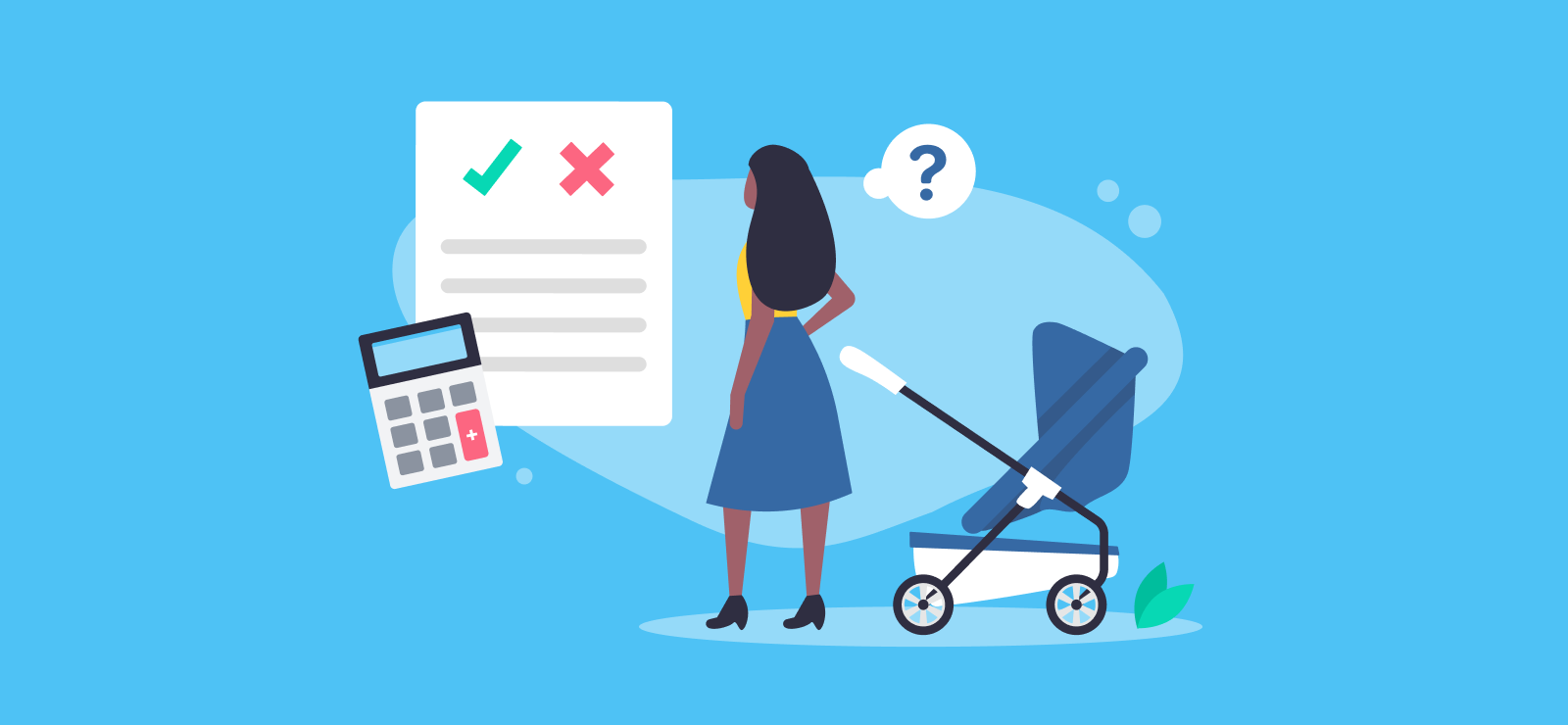

Can I Become Self-Employed After I Retire?
Reaching retirement age can give you more time to try new things, but that doesn’t mean you have to stop working if you’re not yet ready to. Whether you want to supplement your pension by earning extra cash or explore new skills, there are lots of opportunities available – including self-employment.
But what does this mean for your pension and paying tax? We look at what to consider if you’re planning to be your own boss after retiring.
What are the advantages of being self-employed after retirement?
There are all sorts of reasons why you might want to become self-employed after you’ve retired. We look at some of the most common benefits we’ve encountered below.
Find a new focus
Retirement often opens doors to new interests and hobbies that you just didn’t have time for before. Many retired people find themselves drawn to self-employment as a way of staying active, engaged, and financially independent. Whether it’s consulting in a field of expertise or launching a startup, self-employment can be a great way to explore newfound passions and discover a renewed sense of purpose.
Supplement retirement income
With the cost of living ever rising, you might want additional sources of income to supplement your retirement fund.
Get a sense of flexibility and autonomy
One of the most enticing aspects of self-employment is the freedom it gives you. You can pick your own projects and working hours, and work from anywhere. It can be the perfect work/life balance, with plenty of time left to do what you want to do, without the constraints of a traditional job.
Turn hobbies into cash
Whether you really need the cash or not, it can be fun to turn hobbies and interests into profitable ventures. Basically, it’s great to get a kick out of making money from something you love doing! Not only that, but it can also enhance overall wellbeing and satisfaction in retirement.
Will my pension be affected if I become self-employed after retiring?
Deciding to work for yourself after you retire won’t affect the pension payments you’re entitled to, but it might affect the amount of tax you pay.
Pensions (including the State Pension) are taxable, so any you receive will be added to your self-employment income to work out how much tax you need to pay. You’ll pay tax on any earnings you receive above the £12,570 tax-free personal allowance.
How much tax will I pay?
The amount of tax you pay depends on how much you earn during the tax year. Self-employed people pay income tax based on the same rates and thresholds as employees, so that won’t change.
Thanks to the Trading Allowance you can receive up to £1,000 of trading or casual income in a tax year and you won’t need to pay tax on it, or even tell HMRC. You’re entitled to the Trading Allowance even if you receive money from other sources, such as wages from an employer or pension payments.
What about National Insurance?
The good news is that you won’t pay National Insurance once you reach State Pension age. If you’re already self-employed, you’ll continue paying Class 4 National Insurance contributions until the end of the tax year in which you reached State Pension age. A tax year runs from 6th April to 5th April.
For example
Your birthday is 18th May, and you reach State Pension age in 2025.
This means you reach the age threshold in the 2025/26 tax year. You’ll continue making Class 4 contributions until 5th April 2026.
It’s worth thinking about your financial situation and what you’re hoping to achieve by becoming self-employed after retirement. Consider your retirement savings, pensions, benefits, and outgoings. Creating a realistic budget and financial plan will help mitigate risks and cover all financial bases.
Balancing your pension and self-employment income
Self-employment might bring in some extra cash, but it’s worth considering what this means for your tax bill. If you’re drawing from your pension and self-employed, the combined income might take you into a higher tax bracket. You may decide to change the timing of your pension withdrawals to manage this.
How do I pay tax if I work for myself after retiring?
The way you pay tax on money you earn working for yourself depends on how you set the business up with HMRC. For most people this is a choice between becoming a sole trader or operating through their own limited company.
Our free online tax calculator will help you estimate your tax bill as a sole trader versus through a limited company.
As a sole trader
If you become a self-employed sole trader and earn more than the Trading Allowance, you’ll need to submit a Self Assessment tax return to tell HMRC about all of the money you earn (from every source). Self Assessment is the system HMRC use to collect tax on earnings that haven’t already been taxed elsewhere.
HMRC will use this information to calculate your tax bill, but you won’t be taxed again on income which has already been taxed. For example, if you have pension income which your provider has already deducted tax on, you’ll need to include it on your tax return but you won’t pay tax on that chunk of money twice. Your pension provider will issue a P60 end of tax year certificate to show how much tax you’ve paid (if any).
As a limited company
The other option is to form a limited company instead, and submit Company Tax Returns to pay tax on the profits. You might still need to submit Self Assessment if you take personal income out of the business!
Can I continue making pension contributions?
Some pension providers do allow you to carry on making contributions after retirement age. This isn’t universal though, so check the terms of your policy if this is something you’re interested in.
How do I become self-employed?
The route to self-employment involves lots of decisions based on your individual circumstances, so it looks a bit different for everyone. After doing some research you might even decide regular employment suits you better than self-employment! There’s certainly lots of think about, from what kind of business you want to start, to pension and tax implications, it can all be a bit of confusing.
Business mentoring and networking
Organisations like the Federation of Small Businesses (FSB), Business Gateway, and local chambers of commerce offer mentoring programs, networking events, and workshops tailored to aspiring entrepreneurs. Connecting with experienced business mentors and getting yourself out there can help you navigate the road to becoming self-employed.
Government grants and funding
Speaking of funding, retired people who are launching a new business may be eligible for a range of funding options, including government grants, loans, or schemes designed to support startups and small enterprises.
There’s a wide range available for different types of small businesses across the country, so start with the ‘Finance and support for your business’ page of the Gov.uk website.
Learn more about our online accounting services for businesses. Call 020 3355 4047 to chat to the team, and get an instant online quote.
Want to learn more?
Subscribe to our newsletter to get accounting tips like this right to your inbox

Read more posts...

How Do Footballers Pay Tax?
24th February 2026We all know top-flight footballers do alright. But how does tax work for professional footballers? Is it treated as self-employed income, or…
Read More
The Accountancy Partnership – Our Positive Reviews
16th February 2026We’re proud of our customers’ reviews here at The Accountancy Partnership The reviews we receive from our customers show how hard we…
Read More
Maternity Pay for Self-Employed People
15th February 2026As a self-employed person you might be eligible to get Maternity Allowance payments for up to 39 weeks. It’s different to Statutory…
Read MoreConfirm Transactions
The number of monthly transactions you have entered based on your turnover seem high. A transaction is one bookkeeping entry such as a sale, purchase, payment or receipt. Are you sure this is correct?
Please contact our sales team if you’re unsure
VAT Returns
It is unlikely you will need this service, unless you are voluntarily registered for VAT.
Are you sure this is correct?
Call us on 020 3355 4047 if you’re not sure.
MTD IT Quarterly Updates
Your final, end of year MTD Income Tax submission is included in your fee, without this add-on service.
We would recommend you submit the quarterly updates yourself using Pandle or alternative bookkeeping software.
However, if you would prefer us to submit these quarterly updates for you, there is an additional fee of £35.00 per month.
Call us on 020 3355 4047 if you’re not sure.
Bookkeeping
You will receive our bookkeeping software Pandle for free, as part of your package.
You can use this to complete your own bookkeeping, or we can provide a quote to complete your bookkeeping for you.
Please select and option below:
Call us on 020 3355 4047 if you’re not sure.

